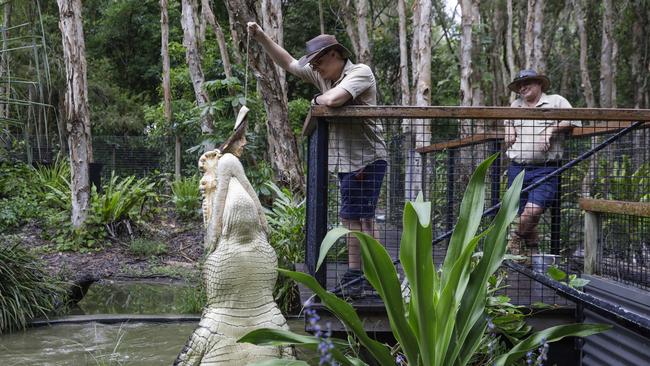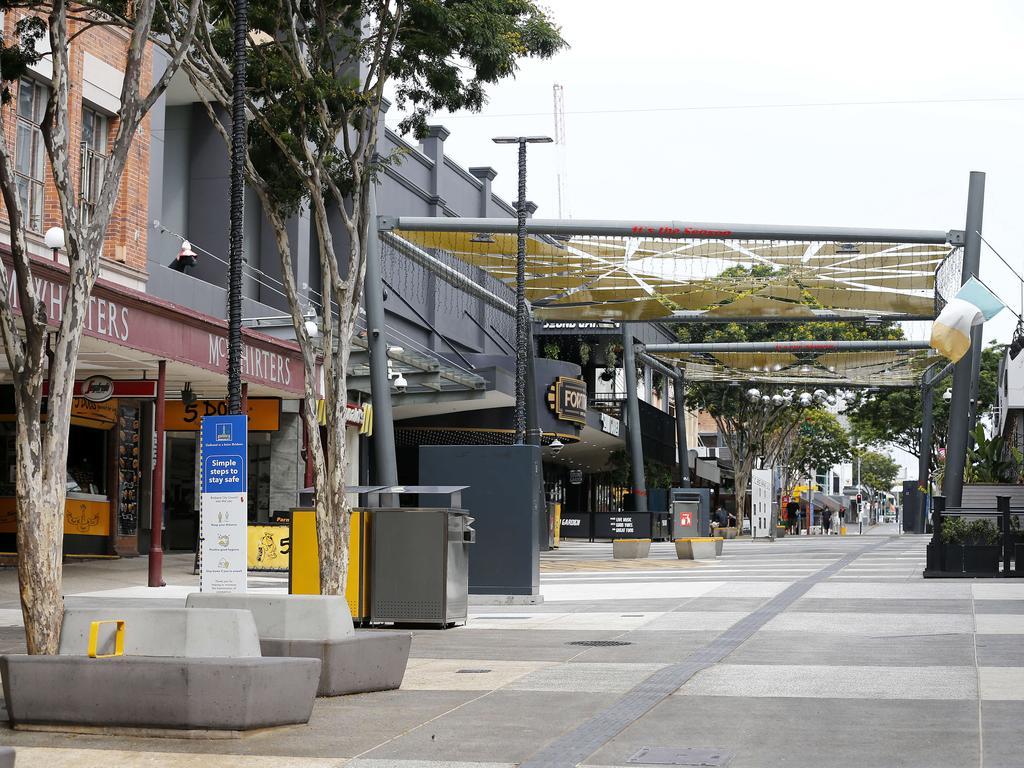Overseas ban makes tropics outlook grim
Spartacus the croc leapt out of the water to snatch his dinner at a farm north of Cairns on Wednesday, and for a moment the problems created by COVID-19 melted away.

Spartacus the crocodile leapt out of the water to snatch his dinner from zookeeper Oscar Croshaw at Hartley’s Crocodile Farm north of Cairns on Wednesday, and for a moment the problems created by COVID-19 melted away.
Cairns has been hit hard by the pandemic. Thousands of workers have been forced on to JobKeeper and most businesses are struggling to survive on a third of normal revenue.
But Hartley’s is remaining positive. Sales and marketing director Angela Freeman said it had been tough, but with hard work and a pivot to the domestic tourism market, they were surviving.
“It’s tough, there’s no doubt about it, but if you didn’t have a positive attitude, you’d go nuts,” Ms Freeman said.
“We’re extremely appreciative of the support provided by the state and federal governments and the Australian public.
“We are most grateful that we’ve been able to retain our wonderful teams and give our animals the best possible care over this time.”
Elsewhere around Cairns the story is less positive.
Summer would normally see the city teeming with Asian visitors ahead of Lunar New Year celebrations, and hotels booked out, but several hotels have not reopened since the April lockdown and the Tjapukai Aboriginal Cultural Park has announced its permanent closure.
The tropical north Queensland city may well be the biggest loser from the ban on international tourists. With the chance that international borders could remain shut for another year, the pain is set to continue, with foreign travellers representing up to 40 per cent of all visitors to Cairns and more than 50 per cent of revenue.
Chairman of Tourism Tropical North Queensland Ken Chapman said the outlook was particularly grim. “This is a really significant destination for the economy of Australia but we’ve been shut down,” he said.
“We’re the third-biggest international holiday destination in the country after Sydney and Melbourne, and the most international tourism-dependent region in Australia.”
Beyond March, when JobKeeper was due to expire, the outlook was even more desperate, particularly in light of state border uncertainty.
“The message really has to be that the federal government is making the decision to keep borders shut (so) they’ve got to step up and take responsibility for the damage that does to the business of international tourism and the thousands and thousands and thousands of people whose jobs depend on that,” Mr Chapman said.
Like other operators in the region, he is adamant JobKeeper must be extended to ensure tourism-related businesses existed when visitors returned next year. “JobKeeper has … probably saved the whole town,” he said. “Other tourism operators (are) very worried they’re going to lose staff and there’s going to be a significant increase in unemployment in the region if JobKeeper isn’t continued.”





To join the conversation, please log in. Don't have an account? Register
Join the conversation, you are commenting as Logout